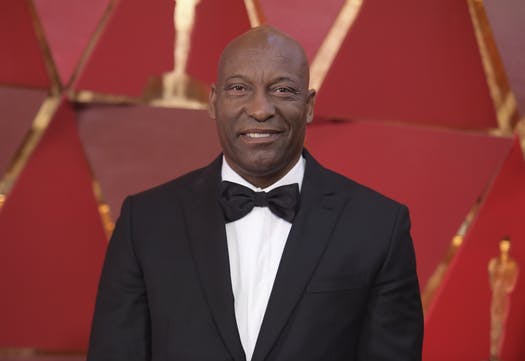Savannah Cooper | Reporter
The City of Angels has lost one of its homegrown stars, John Singleton, at the age 51 after being removed off of life support Monday. The director entered a coma Thursday after suffering a stroke on April 17. The filmmaker, screenwriter and producer has had an historic and trailblazing career with a vast discography that brought communities, topics and subcultures to the big screen in fresh, innovative ways that sparked dialogue and challenged viewers’ thinking.
Singleton, a South Central Los Angeles native, graduated from the University of Southern California in 1990 where he studied in Filmic Writing program. Fresh out of school, Singleton struck gold when Columbia Pictures bought his film debut script in 1991.
“Boyz n the Hood“is a drama that took place in the Crenshaw district neighborhood, following the lives of three young black males (Morris Chestnut, Ice Cube and Cuba Gooding Jr.) as they matriculate through a world intersecting with race, class and zip code at the cusp of young adulthood.
With the relatively small budget of $7 million, “Boyz n the Hood” surpassed expectations earning over $57 million in the box office, earning Singleton a Best Director nomination at the 84th Academy Awards. The historic nomination made him the first African American and youngest, at 24 years old, to join such an elite category. The film became a staple within the black community and in 2002, it was selected to be preserved in the Library of Congress’ National Film Registry.
Theatre and film lecturer Sam Henderson said he was startled by the news since Singleton was only 51 when he died. Henderson was a kid when “Boyz n the Hood” came out, but he said he vividly remembers how monumental the film was and how impactful Singleton was.
“Singleton captured the independent spirit in an era that was primed for it,” Henderson said. “But he did so for a community of voices who were grossly misrepresented or not represented, at all. A lot of that spirit still resides in some of the filmmakers of color, today, like Ryan Coogler, Barry Jenkins, Ava Duvernay, among others, who, like Singleton, seek to be rebels with a cause.”
After “Boyz n the Hood,” Singleton’s prominence grew with hit films like “Poetic Justice,” “Higher Learning” and “Rosewood,” which provided social commentary with multidimensional characters that many related to throughout the 1990s. At the start of the early 2000s, blockbuster films “2 Fast 2 Furious” and “Four Brothers” which showed his range as a storyteller.
Houston senior Maryse Bombito is a communications specialist major, and she splits her course load between film and communications. Bombito discovered the news on Twitter and said she had to re-read it out of disbelief. Bombito said Singleton’s work inspired her and she knows this loss impacts many because of how real and simple his way of storytelling was.
“He was able to capture so many stories that made you think,” Bombito said. “If there’s anything he did with his movies it left you to think about the state of America, the state of our consciousness. It wasn’t even profund stories that he had to fabricate, these were every day things that anybody could identify with.”
Hollywood notoriously struggles with diversity, and when a new voice of color rises to prominence there’s a battle. During the late 1980s, filmmaker Spike Lee became popular and was the token black director allowed “in.” As an adult in the industry now, looking back retrospectively Henderson sees the value in Singleton’s daring work.
“Spike Lee was the chosen one, and there can only be one, right,” Henderson said. “One black auteur of the hour, one black Oscar nominee, only one who is allowed in who can provide a new perspective. Spike showed us that African-Americans can tell stories that are not just their own. But Singleton showed us know that the African-American experience is a story worth telling.”
As a self-described learning filmmaker herself, Bombito said she loves how Singleton’s films generate knowledge from the viewers sometimes unknowingly.
“What I love about his movies is he educates us without it feeling like he’s educating us,” Bombito said. “His work brought black stories to the surface. The stories dispelled different stereotypes and he created different storylines. Storylines do create change, storylines do add perspective to why we do need change and that’s what he did.”
Diversity, inclusion and representation are buzzwords in today’s zeitgeist. But before hashtags, timelines and other catchy phrases, there were key figures like John Singleton who used his platform to its fullest extent, sharing stories authentic to his experience as a black man.



